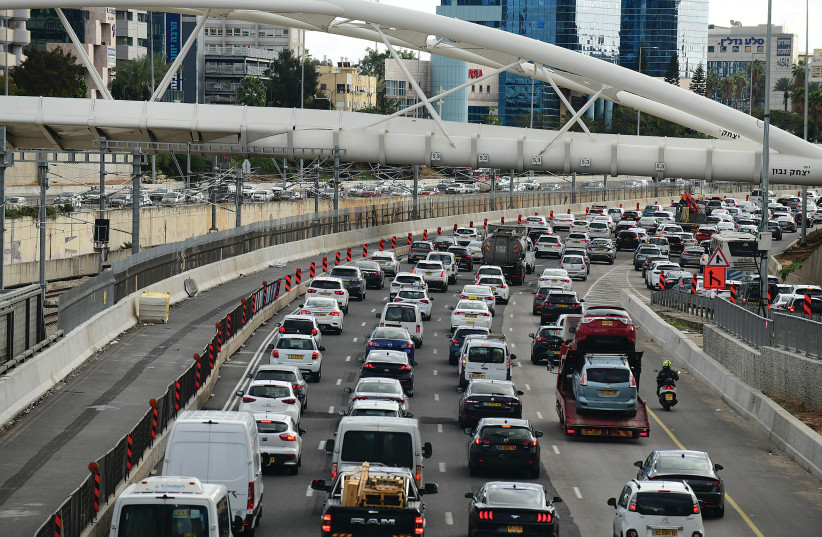Dear new transportation minister: Congratulations on your new appointment and good luck because you are going to need it. You don’t need me to tell you that the situation on Israel’s roads is intolerable. A recent study indicates that since 2020 (pre-COVID), the average rush hour commute has increased 25 minutes per trip for Tel Aviv drivers, with similar increases in other cities.
Traffic also slows down buses, 38% of which are late on average. Then there’s the sharp and scary increase in road rage, the deterioration of air quality and the shortage of parking spaces (and time and gas wasted searching for spots).
Worldwide, transportation is the biggest source of greenhouse gases and is responsible for 27% of greenhouse gas emissions, according to the US EPA. But perhaps the worst aspect of our car culture is the damage it does to us. According to researchers, the more time spent in traffic, the more tense – and unhealthy – an individual is.
The problem, clearly, is that there are just too many cars on Israel’s roads, which were not planned and built to accommodate the levels of traffic we now face. But people need cars to get around – buses do not run 24 hours a day and it doesn’t save much time riding them. Trains are limited in capacity and routes. Meanwhile, we invest huge amounts in new roads to accommodate the new cars, but those roads seem to fill up as soon as they are built.

How can we fix transportation in Israel?
As head of the company that pioneered the revolution in shared transportation in Israel 15 years ago, I believe that if the point of transportation policy is to ensure that people get from point A to point B as quickly and efficiently as possible, we need to be smart about policy. And an important part of that policy needs to be encouragement of shared transportation, which will hopefully lead to a reduction in private vehicle ownership.
One way of doing that is to look at transportation as a platform; with access to all forms of transportation. And without the need to worry about issues like comprehensive insurance, parking tickets, or vehicle damage, I believe many Israelis would opt to leave their own cars at home or get rid of them altogether, saving themselves lots of time, frustration and money.
Proper policy, encompassing local authorities and relevant ministries – transportation, finance, interior – along with companies that operate shared transportation services can help make this a reality. Israel could and should take lessons from European cities where smart transportation platforms based on big data, sharing and other advanced technologies have helped improve traffic significantly.
In addition, subsidies, tax breaks and other positive incentives that government can easily implement can help make giving up cars seem like a better choice for Israelis than owning one. With fewer vehicles on the road, we will all be able to breathe and travel more easily.
I realize that this is a far different way of looking at transportation than most of us are used to. But changes in the way we travel are needed – badly. People need to own their journeys, not vehicles. If there was ever a time to think differently about transportation policy, this is it. I wish you success in your office and I hope you will take these ideas to heart.
The writer is CEO of GoTo Global.
